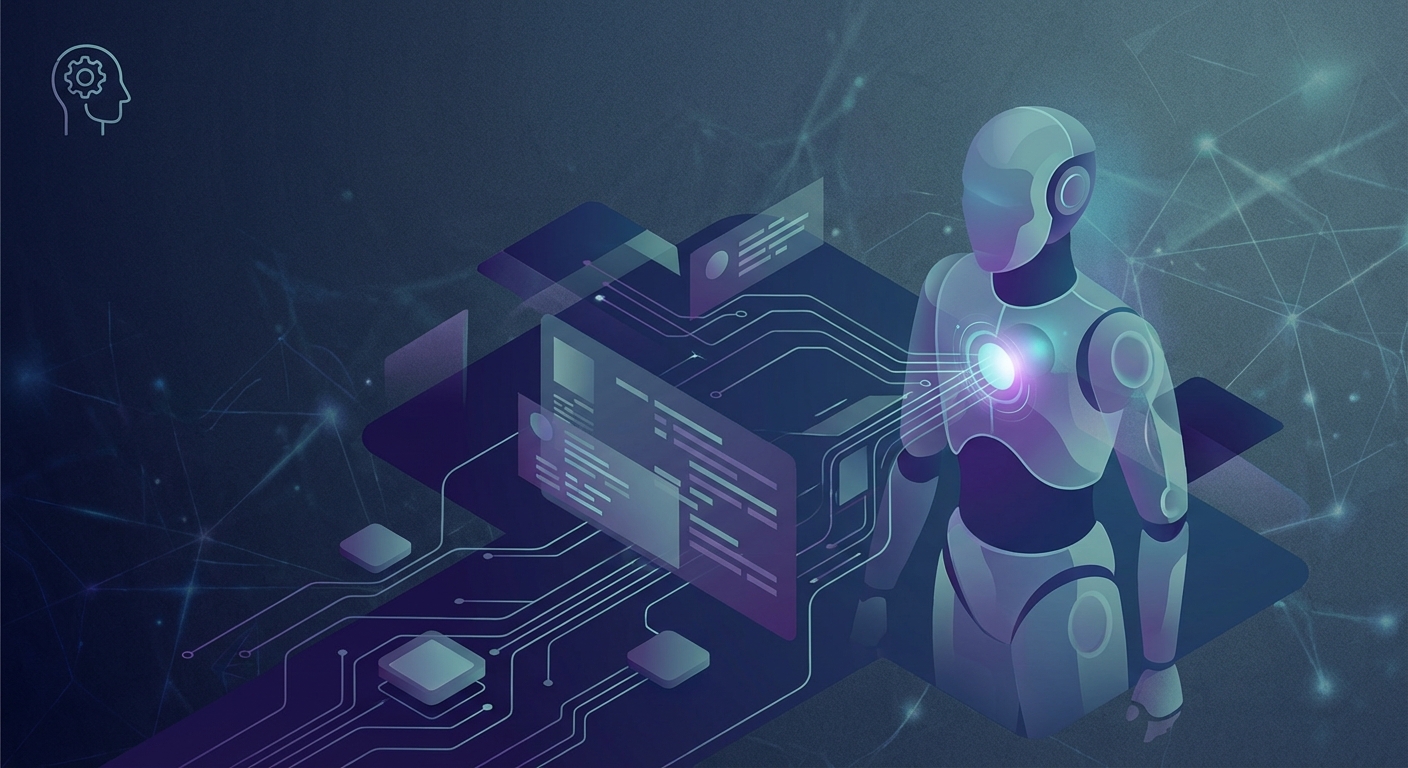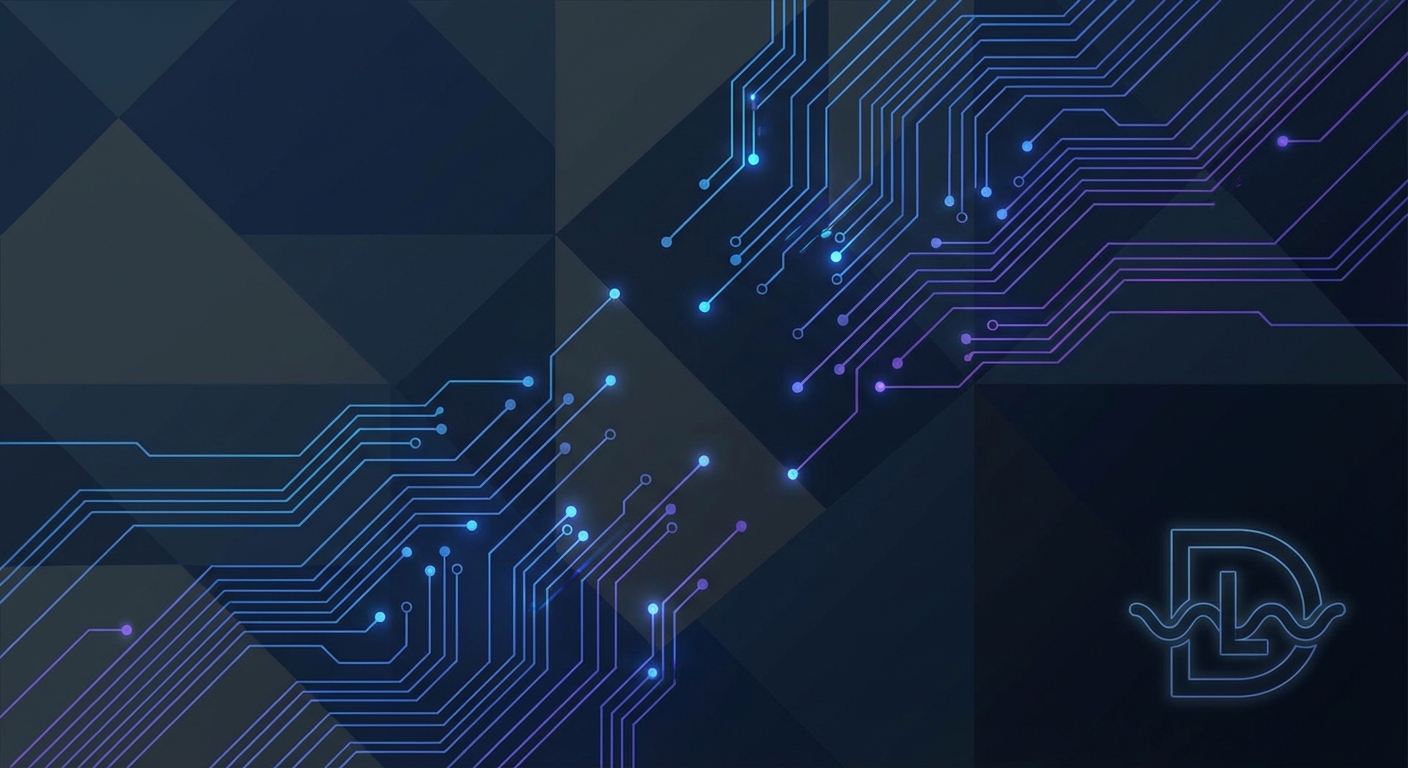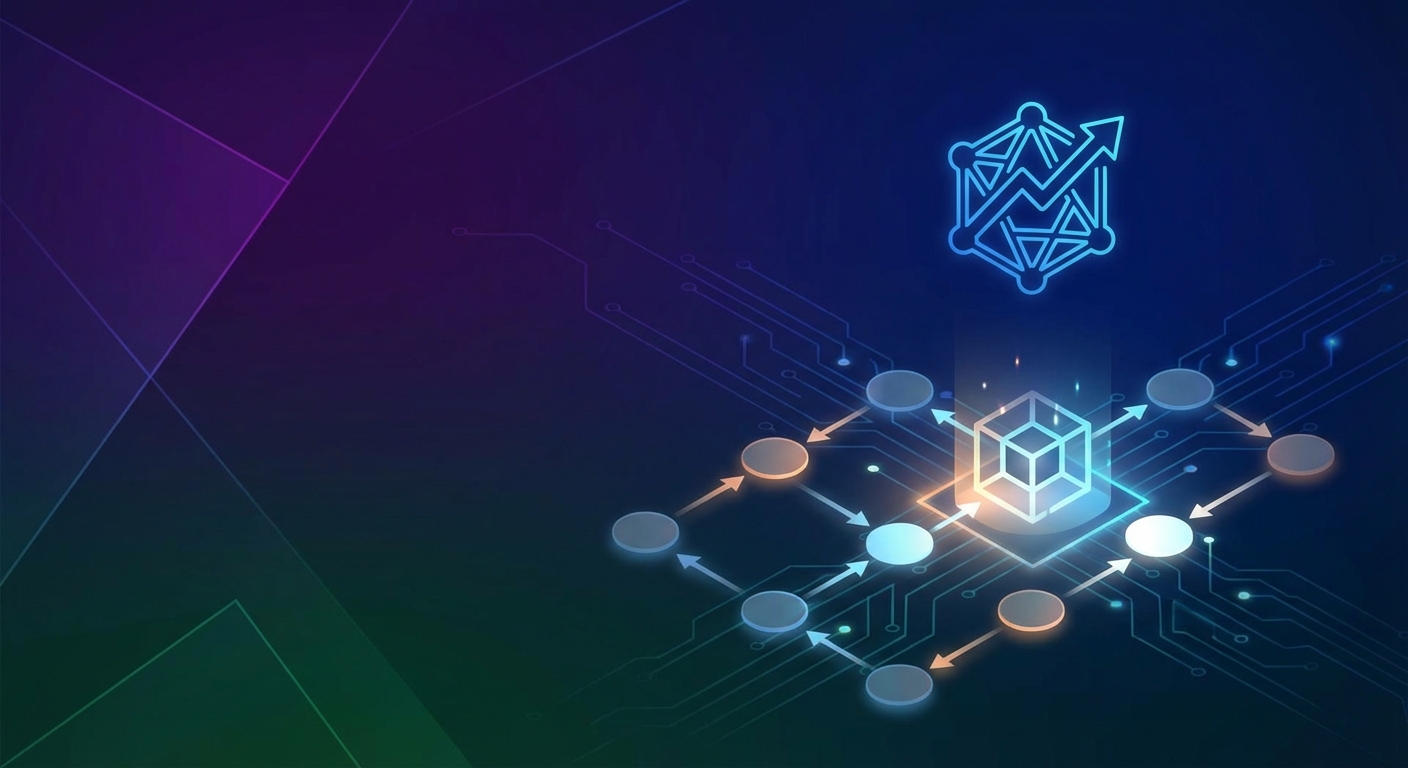The Development of Intelligent Agents: A Comprehensive Case-Based Overview
TL;DR
- This article covers the evolution of intelligent agents, exploring their architecture, deployment, and impact across various industries. It includes real-world case studies that illustrate practical applications, challenges, and best practices in developing and implementing these agents. The overview also emphasizes the importance of security, governance, and ethical considerations in ai agent development.
Introduction: Understanding Intelligent Agents
So, you've probably heard about intelligent agents, right? It's not just some sci-fi thing anymore; they're kinda everywhere. I mean, think about it – from your phone to those crazy-good recommendation systems online, virtual assistants like Siri and Alexa, and even the spam filter in your email, intelligent agents are working behind the scenes to make our lives, well, a little easier maybe? (Autonomous AI Agents Explained: What They Are and Why ... - Domo)
What exactly are we talking about here, though? Good question. Here's the gist:
Autonomy is key. Intelligent agents aren't just following orders. They can make decisions on their own, which is kinda wild, isn't it? Think about how a self-driving car navigates traffic, making split-second choices. It's not waiting for a human to tell it what to do at every turn! (How do self-driving cars navigate complex traffic situations ... - Quora)
They react to the world. These agents aren't living in a vacuum. They're constantly sensing their environment and responding to changes. A simple example is a thermostat that adjusts the temperature based on the room's current state.
Proactive, not just reactive. It's not enough to just react; they anticipate and plan ahead. Like, imagine a smart home system that learns your schedule and preheats the oven before you even get home. Now that's thinking!
Social butterflies (sort of). Some advanced agents can communicate and collaborate with other agents or humans, enabling complex coordination. For instance, in a supply chain management system, different agents might coordinate to optimize logistics, provided they are programmed for such interaction.
But here's where it gets interesting. Intelligent agents aren't just if-then statements on steroids. They're different from your run-of-the-mill AI systems because they're designed to be independent and goal-oriented. They have a purpose, are able to make decisions, and aren't just crunching numbers. So, as we dive deeper, we will see how these components work.
Architectures and Frameworks for Intelligent Agents
Okay, so you want to build an intelligent agent? That's cool, but where do you even start? Turns out, there's a bunch of different ways to architect these things. It's not just slapping some code together and hoping for the best, you know.
Belief-Desire-Intention (BDI) is pretty popular – especially when you want an agent to be all rational and stuff. It's based on the idea that an agent's actions comes from what it believes, what it wants, and what it intends to do. Like, imagine an agent managing your calendar. It believes you have a meeting, desires for you to attend on time, and intends to send you reminders.
Subsumption Architecture: Forget top-down control. This one's all about layers. Each layer handles a specific task, and lower layers can subsume, or take over, higher ones if needed. Think of a cleaning robot: the bottom layer avoids obstacles, the next layer explores the room, and the top layer seeks out dirt. If it bumps into something, obstacle avoidance takes over. and that is kind of important.
Hybrid Architectures: Why pick just one? Hybrid architectures mix and match different approaches. You might use BDI for high-level planning and subsumption for low-level control. It's like having a ceo (BDI) who sets the goals, but the floor manager (subsumption) makes sure the day-to-day stuff gets done.
So, architectures are cool, but you don't want to code everything from scratch, right? That's where frameworks come in. To streamline the development process and provide pre-built components, various frameworks are available.
JADE (Java Agent Development Framework): This is exactly what it sounds like. It lets you build agents in Java. It simplifies multi-agent system development by handling a lot of the communication stuff for you, so you can focus on the agent's logic.
ROS (Robot Operating System): Don't let the name fool you; it's not just for robots. ROS is a flexible framework for building all sorts of agent-based systems. It provides a robust ecosystem for robotics and beyond, with tons of tools and libraries, but it can be a bit complex to get started with.
Choosing the right architecture and framework depends on what you're trying to do. Complexity, scalability, what domain you're in – these all matters. It's a bit of a trade-off, but hey, that's tech for ya. For agents requiring complex reasoning and planning, BDI might be preferred. For simpler, reactive systems, Subsumption could be more efficient. JADE is often chosen for its focus on distributed agent communication, while ROS offers a broader suite of tools for complex robotic systems. Next up, we will talk about choosing the right one.
Case Study 1: AI Agents in Customer Service Automation
Okay, so ai in customer service... sounds kinda sterile, right? But honestly, it's changing the game. What was once a tedious job for humans is getting a serious upgrade.
We're talking about way more than just those annoying chatbots that can't understand a thing. Intelligent agents are now handling complex customer interactions, and doing it pretty darn well.
- Faster response times: Customers hate waiting, obviously. AI agents can provide instant support, 24/7. I mean, who wants to sit on hold for an hour just to ask a simple question?
- Personalized experiences: ai can analyze customer data to tailor interactions. I saw one demo where the agent knew the customer's purchase history and could proactively offer relevant solutions. Creepy? Maybe a little. Effective? Definitely.
- Cost reduction: Let's be real, companies are always looking to save money. AI agents can handle a large volume of inquiries at a fraction of the cost of human agents. Think of it as offloading the easy stuff so humans can focus on the trickier problems.
- Scalability: During peak seasons or unexpected surges in demand, ai agents can easily scale up to meet the needs. No more long wait times during black friday sales.
- Improved agent satisfaction: By automating repetitive tasks, ai agents can free up human agents to focus on more challenging and rewarding work. happy agents, happy customers? maybe.
It's not just about answering FAQs. Some ai agents can now:
- Handle complex troubleshooting: Guide customers through technical issues step-by-step, using natural language.
- Process returns and refunds: Automate the entire process, from initiating the request to issuing the refund.
- Upsell and cross-sell: Identify opportunities to recommend relevant products or services based on customer needs.
Look, ai isn't going to completely replace human agents anytime soon– or ever. The best solutions are hybrid, where ai handles the routine stuff and humans step in for complex or sensitive situations. It's about finding the right balance, you know? And making sure the ai is actually helpful, not just another source of frustration.
Case Study 2: Intelligent Agents in Supply Chain Optimization
Supply chains can be a beast to manage, right? It's like herding cats, honestly. But what if intelligent agents could step in and make things, you know, smoother?
Think about all the moving parts in a typical supply chain: forecasting demand, managing inventory, optimizing logistics, and let's not forget the constant risk of disruptions. It's a lot! The goal? To use ai agents to streamline these processes, cut costs, and boost efficiency. For example, an agent could analyze historical sales data and market trends to predict demand with much greater accuracy than traditional methods.
Agent-based modeling and simulation: Instead of relying on static models, imagine a supply chain simulated with hundreds or thousands of agents, each representing a different entity: suppliers, manufacturers, distributors, retailers. They interact with each other, and you can see how different decisions play out, kind of like a SimCity for supply chains.
Real-time data integration and analysis: These agents aren't just running on old data. They're hooked into real-time feeds from sensors, tracking systems, and market data sources. An agent monitoring truck locations, for example, can instantly reroute deliveries based on traffic conditions or unexpected delays, and they can do it automatically.
Predictive analytics for demand forecasting: Forget gut feelings. AI agents can crunch massive datasets to predict demand with surprising accuracy. This means less waste from overstocking and fewer missed sales from understocking. It's all about finding that sweet spot, and ai can help.
Intelligent agents aren't just a futuristic dream. They're delivering tangible results today. Better inventory management, optimized logistics – it all adds up to a more resilient and efficient supply chain. And who doesn't want that?
Next up, we'll dive into some of the lessons learned from deploying these agents in the real world. It's not always smooth sailing, so let's look at the gotchas.
Case Study 3: AI Agents in Healthcare Diagnostics
Healthcare diagnostics is one of those areas that could seriously be improved by ai, you know? I mean, who wants to wait weeks for test results?
Faster, more accurate diagnoses are the name of the game. ai agents can analyze medical images – x-rays, MRIs, CT scans – way faster than a human, sometimes with better accuracy, too. It's not about replacing doctors, but giving them a super-powered assistant. Think about how quickly a radiologist could spot a tiny tumor if an ai agent flagged it first.
The goal? Better patient outcomes and fewer errors. Early detection is huge, especially with diseases like cancer. ai agents can help catch things early, giving patients a much better chance. Plus, they don't get tired or have bad days, so they're less likely to miss something. it does sound promosing, right?
It's all about computer vision and machine learning. These agents use computer vision to "see" the images and machine learning to learn what's normal and what's not. They're trained on massive datasets of medical images, so they get really good at spotting patterns.
So, how does this actually work? Well, a big part of it is the tech. you have to think about computer vision and image recognition. These ai agents use computer vision techniques to analyze medical images. They look for specific features or patterns that might indicate a disease.
Machine learning models are trained to detect those diseases. They learn from huge datasets of images, so they get better and better at spotting things that are off. The main component is integrations with Electronic Health Records (ehrs). ai agents need to be able to access and update patient records securely. This means integrating with existing ehr systems, which can be a bit of a headache. Common challenges include dealing with disparate EHR systems, ensuring data privacy compliance (HIPAA), and the need for robust apis.
One of the best things about using ai in healthcare is the speed. ai agents can analyze images much faster than humans, which means diagnoses can be made more quickly. Plus, they can often improve diagnostic accuracy. They're less likely to miss something, and they can help reduce the workload for medical professionals.
But it's not all sunshine and roses. Data privacy is a huge concern, especially with HIPAA compliance. You have to make sure patient data is protected at all costs. And ai models need to be validated and tested rigorously to make sure they're accurate and reliable. Ethical considerations are also important and transparency is a must, you know?
Coming up next, we will be discussing AI Agents in Financial Fraud Detection.
Security, Governance, and Ethical Considerations
Okay, so, intelligent agents are getting smarter, right? But that also means we gotta think about the, uh, not-so-fun stuff, like keeping them secure and making sure they aren't doing anything shady. It's like, giving a kid a powerful tool – you need to teach them how to use it responsibly, you know?
First off, security. These ai agents? They're basically software, which means they're vulnerable.
- Think about it: if someone hacks an agent controlling a power grid, that is not good. Like, at all. We're talking potential blackouts, infrastructure damage, the whole nine yards. It's not just about protecting data; it's about protecting real-world systems.
- Data breaches are another biggie. Imagine an ai agent in healthcare getting hacked. Patient data is super sensitive, and a breach could lead to identity theft or worse. Plus, there's HIPAA to worry about, which is a whole other can of worms.
- And then there's impersonation. Who is operating the ai? You have to be sure that someone isn't pretending to be someone else, or that the agent itself isn't being used to impersonate others.
So, how do we keep these agents in line? Well, that's where governance comes in. It's not exactly the most exciting topic, but it's super important.
- Policies and regulations are key. We need clear rules about what ai agents can and can't do. It's like setting boundaries for a toddler, but with code.
- Compliance and auditability are also a must. We need to be able to track what these agents are doing and make sure they're following the rules. Think of it as a digital paper trail.
- Risk management is important, too. We need to identify potential risks and have a plan to mitigate them. It's like preparing for a storm before it hits.
And then there's the ethical stuff. This is where it gets tricky.
- Bias is a real problem. AI agents are trained on data, and if that data is biased, the agent will be, too. Imagine an ai agent used for hiring that's biased against women. Not cool, right?
- Transparency is super important. We need to understand how these agents are making decisions. It's not enough to just say "the ai did it." We need to know why.
- Accountability is a must. If an ai agent messes up, who's responsible? Is it the developer? The company using it? The agent itself? These are tough questions.
It's a lot to think about, but it's essential if we want to use intelligent agents responsibly. Next, we'll look at the impact these agents have on jobs and the workforce.
Future Trends and Challenges
Okay, so what's next for intelligent agents? It's not all sunshine and rainbows; there's definitely some stuff we need to figure out– you know?
Machine learning and deep learning are gonna keep pushing the boundaries. Imagine AI agents that can learn and adapt in real-time, without needing constant retraining. Think fraud detection systems that evolve as criminals come up with new scams, or personalized medicine that adjusts treatments based on a patient's changing condition. It'll be pretty wild, I think.
Edge computing and the iot are going to be huge. Instead of sending all data to the cloud, imagine agents processing information right on the device. Think about smart factories where agents control robots and machinery in real-time, or self-driving cars that can react instantly to traffic conditions. It's all about speed and efficiency and privacy, honestly.
5G and new communications tech will change things. Faster and more reliable communication means agents can collaborate more effectively. Think about emergency response scenarios where agents coordinate drones, ambulances, and hospitals to save lives. I mean, that's the dream, right?
But it won't all be easy. Scaling and deploying these agents is a challenge. Complexity arises from the interconnectedness of agents and their environments. Data quality issues can lead to flawed decision-making. And a shortage of individuals with the specialized skills to develop, deploy, and manage these advanced systems remains a significant hurdle. It's a lot.
Conclusion
So, we've been talking a lot about intelligent agents, huh? But what's the real takeaway here?
- It's not just hype; it's real. From customer service to supply chains, ai agents are making a difference now. They're helping businesses cut costs, improve efficiency, and deliver better experiences. Think about those healthcare diagnostics we talked about; ai helping doctors spot diseases earlier? That’s a game-changer.
- Security and ethics matter. A LOT. We can't just unleash these agents without thinking about the consequences. We need clear policies, regulations, and ethical guidelines to make sure they're used responsibly. Remember that hacked power grid example? Yeah, not fun.
- The future is bright, but not without challenges. We're talking smarter agents, edge computing, and 5G, and it will change everything. But we also need to figure out how to scale these agents, deal with data quality, and find skilled people. The ongoing evolution of intelligent agents requires continued research and development.




